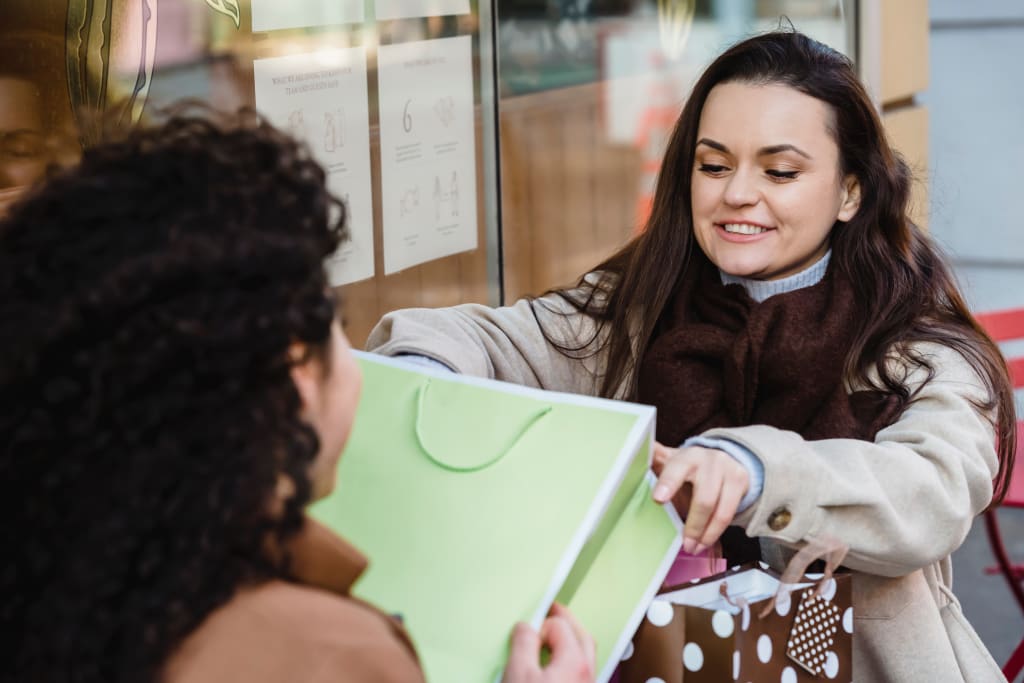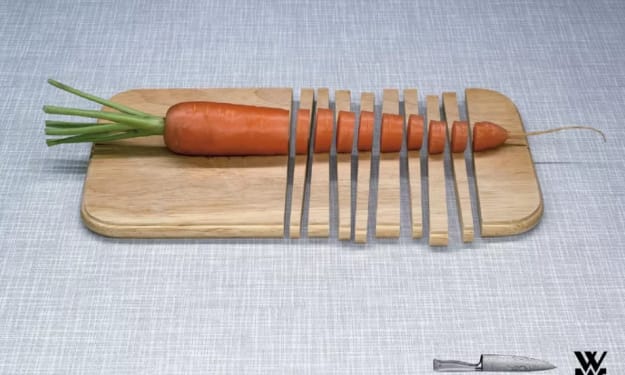The Hidden Psychology of Free Stuff
Do you know freebies are essentially a reciprocity trigger?

Remember that friendly salesperson from a nearby eatery with a tray full of bite-sized samples of a delicacy stops you on a busy street, hands you one piece (with a fresh toothpick) to try for “Free.” You visit a supermarket, and the store personnel offers you some free candy or small chocolate. Have you signed up to someone’s mailing list to get a free SEO checklist or a workout planner, or any such freebie?
Who doesn’t love freebies? We know there is absolutely no free food, but we queue up at any sign of a freebie. Buy 1, Get 1 (FREE) Pizza, anyone? But what if a freebie tricks you only to be their captive? Oops! Ok, lifelong customer.
Why We Give in to The Temptation of a Freebie?
“Freebies” serve as delicious bait-cheese to get people to buy a new product or service. People give in to freebie temptation because they are not risking anything after all. Or are they?
In his book ‘Predictably Irrational,’ Dan Ariely says people change their behavioral patterns and are more willing to comply when something free comes along. “Free” is a powerful emotional trigger that’s often irresistible; it makes people hoard countless mugs, key chains, or discount coupons for their next shopping.
How Do Freebies Help Any Business?
Freebies are like a foot in your door for businesses. You know how? Would you have tried that new restaurant if they did not offer you a free bite from their kitchen? Or considered signing up for that new course without the free e-book (lead magnet) the course creator created to give you an idea of what you can expect? Or do you know why the yoga guru offers a free trial class?
Freebies work because they leverage the power of reciprocity. In reciprocity, whoever offers something first, for free of whatever value, wields the power of demanding back something of a (mostly)bigger value.
Reciprocity is sometimes a double-edged sword one cannot escape. Even if you do not subscribe right away to a paid subscription, you would have noticed you keep receiving valuable snippets of helpful information weekly or sometimes monthly. Freebies build familiarity and trust with a brand or a product (without your knowledge).
There is one more game that it plays on us. When we receive something of value over and over, we end up liking that person or product they offer. When we fall into the likeability trap, we also feel obliged to give back whatever value we have received. So once we are ready or can afford something they offer, we happily sign up.
In Robert Cialdini’s “Influence: The Psychology of Persuasion,” he mentions a scenario where during an experiment to prove this, at an art exhibition, a guy (say Joe) is told to accompany a visitor. During their walk, Joe steps out, saying he will get a bottle of cola for himself. He walks back to the exhibition with two bottles of coke, one for himself and another for the visitor as well, and says, “I bought one for you too.”
The visitor now feels obliged to accept it; after all, Joe has taken the trouble to get an extra bottle of coke. Once the visit ends, Joe asks if the visitor would like to buy a couple of raffle tickets he is selling. The visitor now has the principle of reciprocity kicking in and feels he should thank Joe for his thoughtfulness to bring him a coke. He agrees to buy the raffle ticket.
One coke cost 10 cents while raffle tickets were 25 cents. Some visitors even bought 10 tickets. So by making the first offer, Joe had the power to demand (and got more than what he offered). Visitors who were not offered coke in the experiment almost always denied when requested to buy raffle tickets, but nearly 100% of visitors who were offered coke bought raffle tickets proving the theory of reciprocity.
Give and Take, and Take and Take Policy
Once businesses get their first sale from us, that is not the end. Because we now trust the product so much and like the person too, we buy even more from them. Any guesses why it is so?
Here enters another human characteristic, commitment. A commitment is so powerful that our mind rebels against any other choice. It’s like fighting against our own earlier decision to buy a particular product. So we stick with it to remain consistent with our choices. We are committed to a long-term relationship with the business. It may be your go-to supermarket, restaurant, product, service, website, or even a coach. Talk about customer loyalty.
We are committed to a long-term relationship with the business.
Studies also say, tagging a freebie to a full-priced product (as a bonus) increases the perceived value of the product or service on the whole. For example, An offer of — Your kids eat free when you order two buffets at a restaurant.
My daughter is excited to visit a particular pharmacy near me because they give us a free children’s magazine and a small toy on every visit. And we end up buying our medicines there all the time. So who’s winning?
A Word of Caution About Freebies.
Sure the businesses should exercise caution when offering freebies.
• If businesses offer freebies to targeted customers, they can get maximum conversions. Else it is a wasted cost and effort to serve customers who do not have an appetite for that product or service.
• The quality of the free product or service should be worth the promise. Else customers turn their back and walk away because nobody gets a 2nd chance to make a first impression.
• Sometimes businesses have a tactic of using up old and probably damaged or expired products as freebies, which is a turnoff for a probable customer or even an existing customer.
• Maintaining consistent quality and improvising the product or service as per valid feedback converts and keeps customers.
• Businesses should monitor the budget for freebies, lest they end up making very little profit. Experts say freebies can be up to 5% of the sales, while the perceived value of the freebie should be about 20% for the customers.
Here Are The Pros of a Freebie:
• Gives businesses a foot in your door.
• Builds familiarity and trust.
• Enhances likeability quotient.
• Triggers reciprocity feelings.
• They get a sale! And then some more.
Whatever be the product or service, a helpful freebie is a great way to start an association or sweeten the deal for a new customer. Freebies are deemed cheap, and hence people have low expectations. But if a freebie is worth its weight in gold, then it’s natural for probable customers to think the actual product is worthy of investment.
As prospective customers, we too need to be aware of what we have to be prepared for when we next accept a shiny orange carrot. Because now we know that it is in the interest of the business that we get offered a freebie. Do leave your thoughts about freebies in the comments.
Like what you read? Let’s connect on Twitter.
Kindly add the Canonical Link. Originally published at:
https://bettermarketing.pub/the-hidden-psychology-of-free-stuff-1faef4fca7






Comments
There are no comments for this story
Be the first to respond and start the conversation.